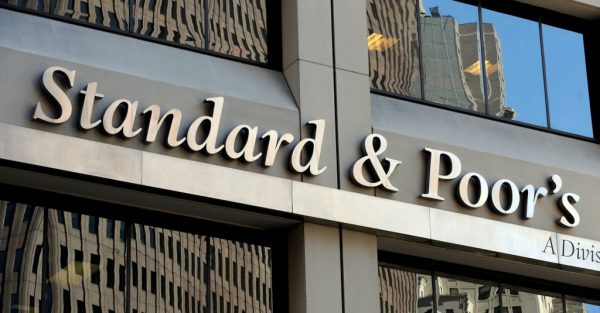
Venezuela has defaulted on two of its US dollar-denominated sovereign bond issues. Downgrading Venezuela’s sovereign rating to SD (“selective default”), the ratings agency Standard & Poors said that Venezuela had “failed to make $200 million in coupon payments for its global bonds due 2019 and 2024 within the 30-calendar-day grace period.”
For long-term Venezuela watchers like me, this default comes as something of a relief. Venezuela’s determination to maintain debt payments despite the horrendous humanitarian cost to its population has been an international scandal. And even more scandalous has been the determination by some investors to profit from Venezuela’s mismanagement of its finances. Because of their very high yields, Venezuela’s “hunger bonds” have been popular with Wall Street giants like JP Morgan. The angry part of me wants all those investors who have profited from Venezuela’s distress to lose their shirts, big time. But the more cynical part of me says the real villain is Maduro, who has sacrificed his people to maintain Venezuela’s international standing.
S&P says that it expects Venezuela to default on other bond payments. This comes as absolutely no surprise. A further $420m of bond payments are already overdue: unless Venezuela finds some dollars in a hurry, these will also go into default very soon.
S&P also warns that Venezuela could embark on a coercive debt restructuring that would in effect be default. Indeed, it has already announced its intention to do so, though as yet it has produced no plan. But we can imagine what such a debt restructuring might look like: in 2012, Greece imposed a coercive debt restructuring on private sector investors, and Argentina has restructured its dollar-denominated debt twice this century, the second time to sort out the dog’s breakfast Argentina made of the first restructuring. Investors could take substantial losses, and there would no doubt be lawsuits lasting for years. The biggest winners from distressed debt restructurings are always lawyers.
S&P is the first to pronounce Venezuela in default on its international obligations. It is unlikely to be the last. The other ratings agencies are still considering their response. And separately, the swaps and derivatives association ISDA is debating whether to declare PDVSA, Venezuela’s state-owned oil company, in default. PDVSA has actually paid up, but well outside the “grace period” for payments. When a cash-strapped household does this to a credit card company, the credit card company regards them as in default even if they eventually pay up. There seems no reason why PDVSA should be treated more leniently.
If ISDA does declare PDVSA in default, this would trigger a “credit event” under which credit default swaps (a form of insurance on corporate and sovereign debt) would pay out to investors.
Because PDVSA is entirely state-owned, its debt is in effect Venezuela’s sovereign debt. Venezuela is therefore in deeper trouble than S&P’s pronouncement indicates. And since Venezuela has now defaulted on sovereign bonds, rescuing PDVSA by swapping its debt for new dollar-denominated sovereign bonds is no longer a realistic possibility.
There are a host of suggestions about what a restructuring for the combined debts of PDVSA and its sovereign might look like. Lee Buchheit and Mita Gulati, for example, suggest that Venezuela should withdraw PDVSA’s oil concession in return for accepting responsibility for its debt. This would in effect make all of Venezuela’s sovereign debt oil-linked. PDVSA’s receivables from oil production, and other oil-related assets, would effectively become sovereign assets. Gulati says that this should help to protect them from seizure by holdouts. Hmm. Color me unconvinced. Holdouts in a Venezuela sovereign debt restructuring would not hesitate to lay claim to sovereign assets, if they could – anyone remember Elliot’s seizure of an Argentine Navy ship, ARA Libertad, in 2012?
But there is a much, much bigger problem looming. Figures from the latest IMF World Economic Outlook database reveal that Venezuela is entering hyperinflation. The IMF forecasts that inflation will rise to 2,350% in 2018 and reach an astonishing 4,685% by 2022.
If this is not stopped – and short of regime change, it is hard to see how it can be stopped, since the IMF was shut out over a decade ago and the Venezuelan government does not welcome external interference – then sovereign debt restructuring will be entirely pointless. As Venezuela’s currency collapses, foreign currencies will become infinitely valuable, and therefore unaffordable. Venezuela’s oil production has already fallen so much that it is no longer earning enough US dollars to meet its debt obligations, and with a worthless currency it will be unable to obtain dollars on the open market. Default is therefore inevitable, with or without restructuring.
Venezuela is unlikely to default on local currency bonds, since Maduro’s central bank is perfectly happy to print money to meet fiscal obligations. But who wants payment in a currency worth considerably less than the toilet paper that is currently unobtainable in Venezuela?
It is not helpful either to Venezuela or its creditors to discuss debt restructuring without also addressing the economic collapse and hyperinflation that is driving it to default. Venezuela needs massive international aid and help to reconstruct its wrecked economy.
But first, Venezuela must agree to be helped. And it has not yet reached that point. International sanctions make matters worse, since the Maduro government merely responds with antagonism. Some hope that internationally mediated discussions between Maduro’s government and the official opposition might break the deadlock, enabling the door to be opened to restructuring. But at present, no-one seems at all concerned about the coming hyperinflation. They are focusing only on the imminent defaults.
The collapse of Venezuela has much further to run
FORBES

Leave a Reply
You must be logged in to post a comment.